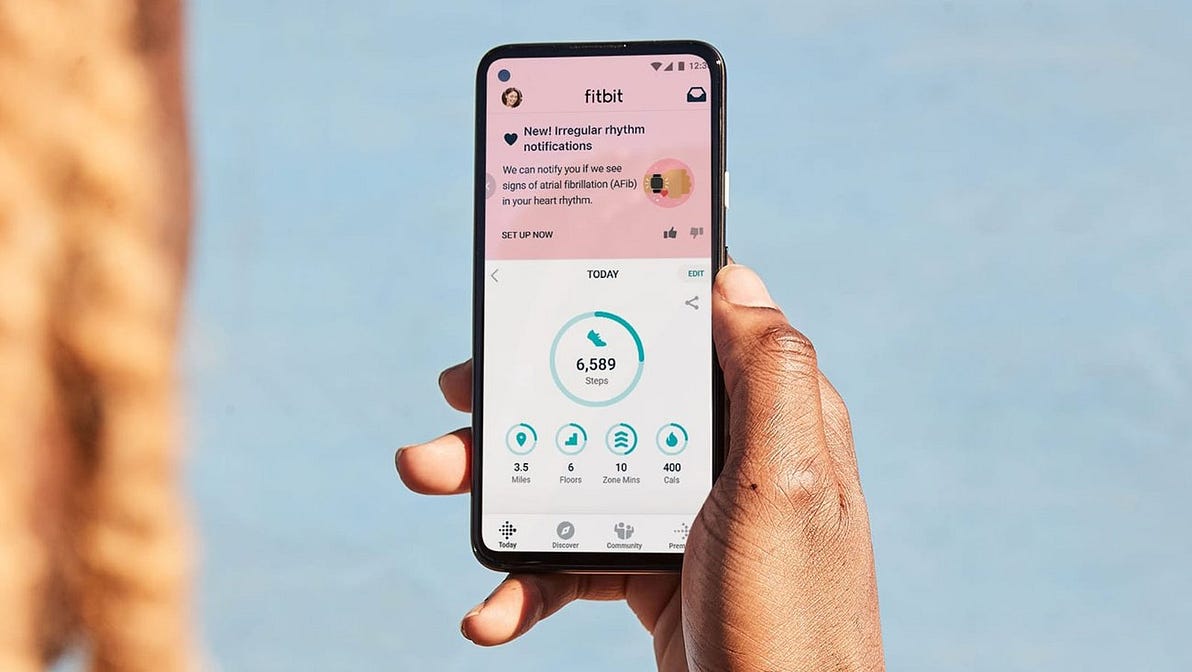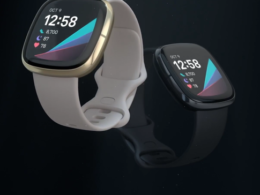The BMS-Pfizer Alliance has been working with Fitbit (now part of Google) to help educate on increasing detection of atrial fibrillation (#AFib).
We are pleased to see that Fitbit recently launched its Irregular Heart Rhythm Notifications feature on select devices.
Raja Mukherjee, Vice President, US Cardiovascular & Metabolics Marketing, and Olga Tarasova, Head of Global Medical Affairs, Internal Medicine, discuss what this advancement can mean for patients and clinicians.
Learn more about the BMS-Pfizer Alliance-Fitbit shared goal: https://lnkd.in/gBCE5xVhPfizer on LinkedIn: Fitbit
The BMS-Pfizer Alliance has been working with Fitbit (now part of Google) to help educate on increasing detection of…www.linkedin.com
Pfizer on LinkedIn: Fitbit
The BMS-Pfizer Alliance has been working with Fitbit (now part of Google) to help educate on increasing detection of…www.linkedin.com

New Fitbit feature makes AFib detection more accessible
Today, Fitbit received clearance from the U.S. Food and Drug Administration for our new PPG (photoplethysmography) algorithm to identify atrial fibrillation (AFib). The algorithm will power our new Irregular Heart Rhythm Notifications feature on Fitbit.
You’ve got rhythm, but is it irregular?
AFib is a form of irregular heart rhythm that affects nearly 33.5 million people globally, and individuals with AFib have five times higher risk of stroke. Unfortunately, AFib can be difficult to detect as there are often no symptoms and episodes can come and go.
Our new PPG AFib algorithm can passively assess your heart rhythm in the background while you’re still or asleep. If there’s anything that might be suggestive of AFib, you’ll be notified through our Irregular Heart Rhythm Notifications feature — allowing you to talk with your healthcare provider or seek further assessment to help prevent a significant medical event, such as stroke.
So how does PPG AFib detection work?
When your heart beats, tiny blood vessels throughout your body expand and contract based on changes in blood volume. Fitbit’s PPG optical heart-rate sensor can detect these volume changes right from your wrist. These measurements determine your heart rhythm, which the detection algorithm then analyzes for irregularities and potential signs of atrial fibrillation.
The clinical validation for Fitbit’s PPG algorithm is supported by data from the landmark Fitbit Heart Study, which launched in 2020 and enrolled 455,699 participants over five months. The study was conducted entirely virtually during the pandemic, making it one of the largest remote studies of PPG-based software to date. Data presented at the 2021 American Heart Association Scientific Sessions found that the Fitbit PPG detections correctly identified AFib episodes 98% of the time, as confirmed by ECG patch monitors.
Because AFib can be so sporadic, the optimal way to screen for it is through heart rate tracking technology when the body is still or at rest — making overnight detection when people are asleep especially important. The unique capabilities of Fitbit devices — especially its 24/7 heart rate tracking and long battery life — give it the potential to accelerate identification through long-term heart rhythm assessment.
All the ways to monitor heart health with Fitbit
With today’s FDA clearance of our PPG-based algorithm, Fitbit now provides two ways to detect AFib. Fitbit’s ECG app, which takes a spot-check approach, allows you to proactively screen yourself for possible AFib and record an ECG trace that you can then review with a healthcare provider. Additionally, the new PPG-based algorithm allows for long-term heart rhythm assessment that helps identify asymptomatic AFib that could otherwise go undetected.
The Fitbit PPG-based algorithm and Irregular Heart Rhythm Notifications feature will soon be available to consumers in the U.S. across a range of heart-rate enabled devices. We want to make AFib detection as accessible as possible to help reduce the risk of potentially life-threatening events — like stroke — and ultimately improve overall heart health for everyone. We’ll continue to work with the BMS-Pfizer Alliance to develop educational content for patients and healthcare providers that will help identify and support people in the U.S. with irregular heart rhythms consistent with atrial fibrillation.
Visit our site to learn more about our PPG technology.
Originally published at https://blog.google on April 11, 2022.
Names mentioned
Raja Mukherjee, Vice President, US Cardiovascular & Metabolics Marketing, and Olga Tarasova, Head of Global Medical Affairs, Internal Medicine












